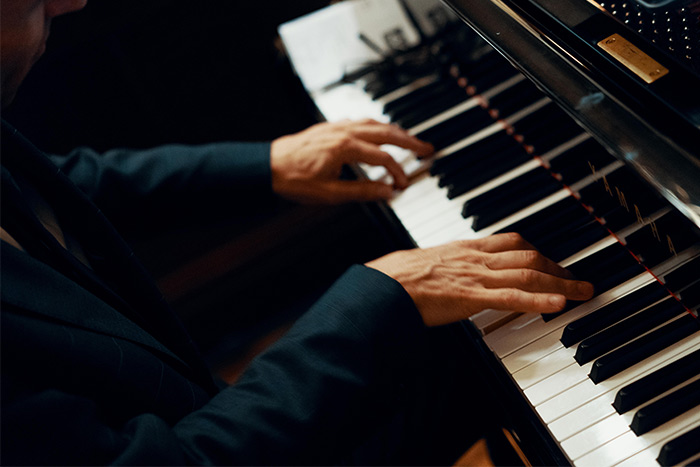After a year of practice, many piano learners face the problem of stopping at a certain level and being unable to improve beyond it.
In fact, this can initially be attributed to the role of talent. But if you look closely at this problem, you will often see that it is due to poor and ill-considered training methods, and perhaps one of the teachers giving you lessons is not skilled or even untalented.
Let us now learn about four steps about the most important innovative methods for developing the pianist’s skill, refining his talent, and expanding his philosophical musical understandings to reach the level of creativity and professionalism.
Step #1: Take Piano Lessons
Take lessons from a professional piano teacher. In record time, a skilled piano teacher can make you perform complex pieces and exercises that increase your skill and finger technique on the piano.
Step #2: Posture and Hand Position
Correct sitting and careful position of the hands on the piano help significantly develop your piano skills.
Step #3: Explore Sounds for New Skills
Listen to all types of music and learn from the creative spirit in them: When you listen to a jazz piece on the piano, your ear will perceive new and innovative tones on the piano. Then, try to get the notes of this piece and start performing the chords used in it.
You will learn many musical chords, such as seventh major and minor, seventh and seventh dominant, and other seventh chords. You will also learn the ninth, eleventh, and thirteenth, which expand your auditory perception and even finger technique.
Therefore, regular listening to all musical styles will free you from the restrictions of classical music, even though classical music is the mother of all other musical styles. However, it is governed by classical and harmonic laws established by the most important early composers, Italy and Germany in particular.
Therefore, you must constantly accustom your ear to listening to all musical tones, including quarter-tone oriental music.
Step #4: Create Your Own Music
Try composing your own pieces of music: After listening to most musical styles, try to test your musical ear by composing your own piece of music on the piano.
Do not be ashamed that you are still a beginner in composing, but this process will incentivise you to be creative. You will tell me that musical composition requires academic study. Still, I will tell you that no matter how much you learn and study, your creativity and innovation will be limited if you do not have the passion and love for musical composition.
Remember, many great music composers started composing from nothing, were self-taught, and created multiple styles of music. Examples: Yanni and Vangelis. Other great composers, such as Beethoven, Mozart, and Bach, built new musical eras.
For example, Bach invented and developed the Baroque era, and after him, Mozart created the Classical era, and then Beethoven invented the Romantic era.
Conclusion
The piano is thought and philosophy before it is just performance. All the piano pieces immortalized in history were full of philosophy and creative genius, and most of them told a story through musical alphabetical signs.
It does not matter if the piano piece is very complex and technical; it can be very simple and easy yet full of philosophy, magic, and high feeling. So believe in yourself, do not underestimate your abilities, and remember that the journey of a thousand miles begins with a single step.
Therefore, make your steps thoughtful and organised. Discipline and continuity are the essential things in practising these steps.










